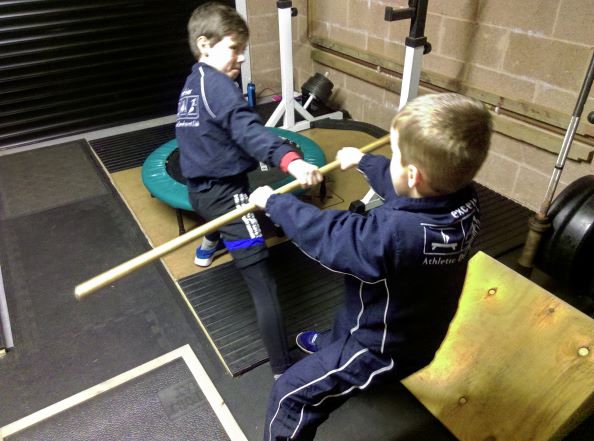Main Menu
Latest Blog Entry
User login
Muscles Strengthening exercises: why the 5km run is not the health panacea.
Muscle-strengthening exercises such as bodyweight exercises, exercise bands, and dumbbell, barbell and machine resistance training exercises have been shown to impact a variety of health outcomes including:
· Improved muscular strength.
· Bone mineral density (stronger bones).
· A decrease in all-cause mortality (the chances of dying from health-related diseases).
· Improvements in cardio-metabolic health (such as Diabetes, and obesity).
· Improvements in mental health.
However, only 10-30% of adults are meeting the recommended guidelines for muscle-strengthening exercises (two sessions per week, targetting major muscle groups). The rates were lowest in low-income, low-education and obese populations.
Health professionals are missing a trick by not recommending muscle-strengthening exercises for these populations. Especially where there are good outdoor facilities (like in Willand).
If you are reading this, it is likely that you are an exerciser, teacher, or health professional, maybe a parent too. Are you doing enough muscle-strengthening exercises?
But what about the 5km run?
The once admirable goal of running in the park with a friend or two has now, unfortunately, become another opportunity for Middle-Class Virtue Signalling (along with Strava and step-counting). No one seems to be able to do it without TELLING everyone what they have done.
The Park Run movement, and the NHS’ ‘Couch to 5k’ programme, create so much noise about the benefits of running 5km that they drown out other exercise initiatives, including sprinting!
This is problematic for two reasons:
1. Many people don’t like jogging and, understandably, either quit or don’t start exercise at all.
2. Jogging doesn’t help you lift, pull, push or carry objects or small humans. Like every other form of exercise, it is good but incomplete.
The health benefits of sustained, rhythmic movement for 15-40 minutes are well-documented and irrefutable. It includes jogging but also exercise modes such as:
· Cycling
· Swimming
· Hiking
· Rowing
· Rope Skipping
· Cross-country skiing (not much use in Devon).
But, like the ’10,000 steps a day‘, there is nothing magical about being able to jog 5km.
Other running activities are ignored by the chattering classes including sprinting (not for older people) and racing a mile run (not far enough to boast about): both of which are excellent activities that require varied training intensities and distances (and a lot less injury-inducing volume of training).
Repeated sprint training has been shown to improve health outcomes more than steady-state aerobic work (like the 5km jog), especially in obese and overweight individuals, and in half the amount of time.
Vary the activity and train with a friend
Like many things in life, a balance of different approaches produces a better outcome, than ‘one-size fits all.’ Try blending:
- Muscle-strengthening exercises (whatever form you like) 2 x week for 20-30 minutes.
- Some longer, continuous exercise (see list above) 1-2 x week.
- Some shorter, speedier exercises such as sprints, rope skipping, or step-ups for 5-10 seconds as hard as you can, rest for 10-20 seconds and repeat. Five minutes is enough, 1-2 x a week.
Exercising can be soul-destroying, especially if you are a beginner, unaccustomed to the feeling of sore muscles and breathlessness, or worried about the safety of the environment around you. No ‘app’ can replace the comfort of a teammate, friend or family member (as long as it doesn’t descend into sibling rivalry).
If you want ideas on what counts as muscle-strengthening exercises, see my YouTube channel. Or, if you live locally, why not come to one of our club sessions?
Good luck.
Common Terms associated with muscle-strengthening activities.
Resistance Training (RT): any exercise that requires you to work against resistance (usually gravity). This includes many different types of training. It isn’t a goal in itself.
Weight Training (WT): a subset of RT. Here you are using weights such as dumbbells or barbells to achieve your goal.
Strength Training (ST): a subset of RT. Here you are trying to get stronger. This can be done in many different ways and using different equipment or your own body weight.
Weight Lifting (WT): this is a sport that consists of two lifts that require you to lift a barbell from the floor to above your head (see video below). You can use the exercises to help you get stronger and then they are a part of RT.
Client Testimonials
 Rugby Football League
Rugby Football League
James' knowledge of strength and conditioning has been a valuable resource that I have used to enhance the training programmes at 4 professional Rugby League clubs; Harlequins, St Helens, Whitehaven and Workington. He has had a positive impact on the performance of the athletes and added to the professional development of coaching staff
More





Comments
Thanks James – a great article with valuable information for everyone and able to be read and understood by everyone! Well done – your work exemplifies evidence based practice at the highest level.
Thanks very much, Mike.